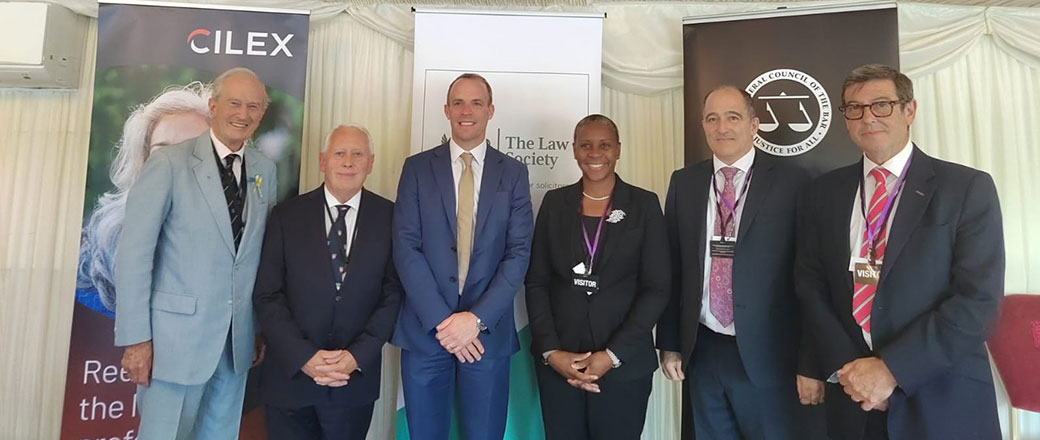
Justice Week: CILEX chair calls for end to “deep-seated cultural biases”

Lord Hunt; Sir Robert Neill MP; Rt Hon Dominic Raab MP; Law Society President I. Stephanie Boyce; Bar Council Chair, Mark Fenhalls QC and CILEX Chair Professor Chris Bones
Speaking at a parliamentary reception to launch this year’s Justice Week, CILEX chair Professor Chris Bones, called for an end to the “existing and deep-seated cultural biases in legal services against those from non-traditional or disadvantaged backgrounds”.
The event, held on 20 June, was attended by government ministers, opposition spokespeople, members of the Justice Committee, parliamentarians from across the political spectrum, the Law Society and the Bar Council. Professor Bones said that “the law, like many other parts of the British establishment, is facing increasing scrutiny and as a result of justifiable criticism is having to face the need to change just as much, and perhaps more, than other institutions”.
He highlighted the fact that law is one of the few sectors where leaders are still predominantly from a private school background, with two-thirds of senior judges and over 50% of partners in firms regulated by the SRA, privately educated, according to a Sutton Trust report.
He expressed concern about the “poor behaviours and employment practices” experienced by many CILEX members, the majority of whom come from socio-economic backgrounds traditionally underrepresented in the profession, but welcomed public commitments made by the government and Judicial Office to address the remaining legislative, regulatory and policy barriers that prevent CILEX members from participating fully in the legal system.
Professor Bones highlighted the important role CILEX members have to play in broadening access to justice and called upon parliamentarians and the other legal professional bodies to work together to act “to address long-standing attitudes, practices, policies and regulations that need reform to diversify the legal system and increase the public’s understanding of the law such that we achieve a shared goal to make justice more accessible for all”.